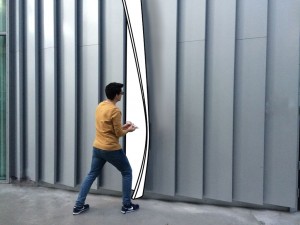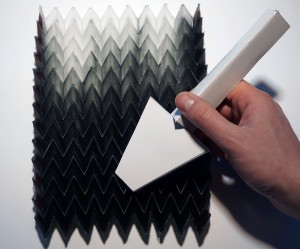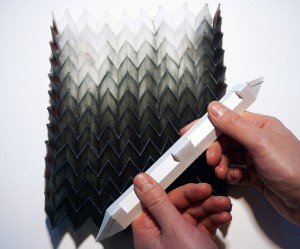MoldIT: A Material Programming Practice
In this speculative project we propose the notion of material programming as a new practice for designing future interactive artifacts. Material programming would be a way for the interaction designer to better explore the dynamics of the materials at hand and through that familiarity be able to compose more sophisticated and complex temporal forms in their designs. As such it would blur the boundaries between programming and crafting these new smart and computational materials.
We envision a material programming practice developed around physical tools that draw on bodily skills and experiences while enabling actions performed directly on the material with immediate effects (no program vs. execution mode). Finally, the tools would enable one layer of abstraction and as such encompass the potential of the computational materials but not that of possibly adjacent computers, which could run more complex algorithms.
Project team
Anna Vallgårda, Laurens Boer, Vasiliki Tsaknaki, Dag Svanæs, Tomas Sokoler, Ylva Fernaeus



